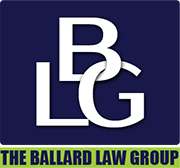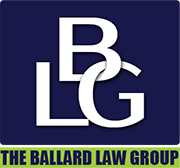If you are looking forward to getting a tax refund this year, you certainly don’t want anything to happen to it. If you are facing a difficult financial situation, you could be relying on your tax refund to help you cover certain expenses like an unexpected car or home repair or to provide necessities for your family. When this is the case, you don’t want your tax refund to be used before you ever get access to it due to a bank setoff.
Most banks put setoff clauses into the contracts you sign when you are opening account or taking out a loan. A bank setoff occurs when your bank or other financial institution takes money from a deposit account—this could be your checking or savings account—and uses it to cover other debts you have from that same institution. If your tax refund is heading to your checking or savings account at a bank where you are behind on other debts, it is possible that your tax refund may be taken in a bank setoff to repay your other debts.
What Can I Do?
If you are facing financial difficulties and are relying on your tax refund for a specific purpose, you may be especially concerned that your tax refund will be taken in a bank setoff. It is important to act beforehand, so you avoid the setoff altogether—the bank isn’t going to give your tax refund back after it uses to pay other debts you owed. This also doesn’t mean you will avoid those other debt payments, but during a tricky financial time, you may have different priorities on how you need to use your tax refund.
A couple options you may have to keep your tax refund safe include:
- Get current on other debts: If possible, get current on other loans you have from your bank so they will not take your tax refund to pay those debts.
- Open an account at another institution: Depending on your circumstances, it may not be possible to get current on your other debts at the moment. Another way to protect your tax refund from an offset is to open an account at a different bank or financial institution where you have no other loans or debts and have your tax refund deposited there. The bank where you have debts or missed payments cannot access your checking account from an entirely different institution, so your tax refund would be safe.
- Consider filing for bankruptcy: When you file for bankruptcy, an automatic stay goes into place. This pauses all collections actions against you for the duration of your bankruptcy. This could keep your tax refund safe from a bank setoff, at least for a while. A bankruptcy can have other implications for your tax refund, so it’s important to talk to a skilled bankruptcy attorney to know if this is the best option for you. You may still be able to keep your tax refund through bankruptcy exemptions or if you show you need it for necessary life expenses.
Get Help from a Skilled Georgia Bankruptcy Attorney Today
At the Ballard Law Group, our knowledgeable bankruptcy attorneys have helped clients facing a variety of financial difficulties for years. We have the experience you want when you are worried about your financial situation and need someone to help you get back on a path toward a secure financial future. If you are worried about your tax refund or have other questions about how bankruptcy could help in your situation, contact us online today for a FREE case consultation or give us a call at (404) 800-9939.


